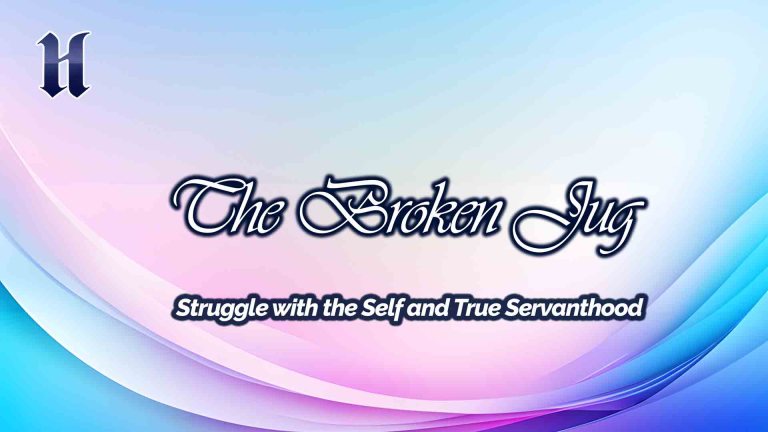Question: How should we understand and apply “istighna”, which is taught to us as an important prophetic morality in the Quran, in our lives? Is istighna a commendable virtue in all situations?
Answer: The concept of “istighna”, as taught in the Quran as an important aspect of prophetic morality, refers to self-sufficiency, independence, and the quality of not being in need of others’ assistance or wealth. Understanding istighna involves recognizing the balance between relying on oneself and acknowledging one’s dependence on God.
Istighna, one of the main characteristics of the great Prophets, means not begging anyone unless absolutely necessary, not asking for anything from anyone, being content with what one has, and preserving one’s dignity. In this sense, it is a commendable and important moral quality that every person should possess. A person who acts with istighna is called “mustaghni” (self-sufficient).
Every attribute, every moral quality, and behavior has its own place, position, and limit. It may be beautiful in one context but take on a different form in another. It may be good within its own circle but not outside of it. This is also true for istighna. For example, we cannot exhibit istighna towards Allah. Acting with istighna towards Him would mean arrogance, pride, and ingratitude, which is incompatible with the awareness of servitude. A person who acts with istighna towards Allah distances themselves from the sublime door where all needs are requested. As Muslims, in the understanding of the Companions of the Messenger of God, we ask Allah for all our needs, big or small, and direct all our requests to Him. In both abundance and hardship, we turn to Him, plead and supplicate to Him. We express our material and worldly desires such as health, well-being, home, and family, as well as our spiritual and otherworldly desires such as His pleasure, seeing His Divine majesty and beauty, and Paradise, only to Him, and we expect all good from Him. We always know that we need Him, and under all circumstances, we await His benevolence and favors with hope. A person who acts with istighna towards Allah deprives themselves of both worldly and otherworldly goods.
There are other matters in which a person cannot remain mustaghni (self-sufficient). For example, we cannot see ourselves as independent from the ideas and thoughts of others. No matter how intelligent a person is, their knowledge and experience are still limited. Just as two minds are better than one, three minds are better than two. A person who sees their own intellect as sufficient has succumbed to the disease of arrogance. Therefore, before making a decision on a matter, we consult with experts and benefit from their opinions and evaluations.
Similarly, we believe that Allah’s guidance and assistance are with the community. Hence, we cannot remain independent from our fellow believers and must walk alongside them. If there is a stream flowing toward the pleasure of Allah and following a lofty ideal, we cannot be content to remain a single drop on our own. If we are content with this, we fear that we will evaporate and vanish with a slight increase in temperature. By participating in such a group and fulfilling our duties, we know that we will achieve results far beyond what we could accomplish alone. When we have the support and efforts of people who share our feelings and walk in the same direction, we believe that our individual efforts will multiply.
These mentioned aspects can be considered as the rejected parts of istighna. If we set these aside, a believer should essentially take the principle of istighna to the center of their life. They should expect nothing from anyone, not beg from anyone, not be indebted, and not bow to anyone. Especially if they have devoted themselves to the cause of iman and Qur’an! Such a person must absolutely follow the path of the great Prophets and never compromise on istighna. As much as possible, they should not be a burden to anyone. This is essential for preserving one’s honor and dignity, as well as maintaining their credit of trust. Those who act with expectations or fall into debt both lose their influence and have to pay the price. The Quran, with many verses, presents this kind of istighna as a characteristic of Prophets. The words, “ وَمَا أَسْأَلُكُمْ عَلَيْهِ مِنْ أَجْرٍ إِنْ أَجْرِيَ إِلاَّ عَلَى رَبِّ الْعَالَمِينَ ”, “I do not ask you for any reward for this. My reward is only from the Lord of the worlds” (Surah ash-Shu’ara, 26:109), have been the common voice and breath of all Prophets.
Some people may need to distance themselves from worldly occupations and wholly dedicate themselves to the cause of serving the faith and the Qur’an. These devoted individuals may need to write, draw, speak, and work tirelessly in line with their lofty ideals. Even if these dedicated individuals do not expect anything from anyone, do not want to be a burden to the service, and desire to earn their livelihood through their own hard work, it is crucial for some people to devote their time and energy entirely to this work to ensure that tasks are carried out efficiently. In such cases, it is necessary for people of generosity to not leave them alone and unsupported, to extend a helping hand, and to take on their care and maintenance. Therefore, in a sense, these individuals will need to sacrifice their principle of istighna.
Resorting to people’s support when necessary, asking them to establish educational institutions, encouraging them to finance services done in the path of Allah, and requesting things from them in this regard are not actions contrary to istighna. Firstly, this is not about asking for something for ourselves. It is about, albeit reluctantly, requesting things from others for the sake of Allah’s cause and for others. The Messenger of Allah (peace be upon him) also did this on different occasions and collected help from people. However, it is crucial to be extremely transparent here, to account for the inputs and outputs, and to stay away from anything that could undermine people’s trust. Our behavior should be so trustworthy that no one harbors negative thoughts about us. We must not touch even the smallest thing belonging to the community, the public service, or the state. Those who remember us should recall us as people of security and istighna.
When we look at Islamic history, it is evident that true scholars and friends of Allah have always protected their dignity and independence and have tried to stay away from rulers as much as possible. If Izz b. Abdisselam was able to make the rulers of his time listen to him, it was because of this stance. If Imam Ghazali had an influence on Nizam al-Mulk and to some extent on Kilij Arslan and Malik Shah, it was due to his istighna and sincerity. Even though figures like Akshamsaddin, Ebussuud Efendi, and Zenbilli Ali Efendi held positions such as Shaykh al-Islam, they always maintained their dignity, did not bow to rulers, and did not compromise their istighna. As a result, they were able to make the most powerful sultans of the Ottoman Empire listen to them and be influenced by them.
Similarly, Bediuzzaman did not accept gifts from anyone and made frugality and contentment his primary principles. Because of this, his words were accepted by his audience. To the extent that they preserved their honor and dignity, Allah made them self-sufficient and strengthened them. The duty of those who dedicate themselves to religious mentoring and spiritual guidance today is to follow their path.
Throughout history, alongside the true scholars who are the heirs of the Prophets, there have also been palace scholars known as ‘ulama al-su’ (scholars of evil). In contrast to the true scholars, these individuals sought to gain favors from those in power by flattering and ingratiating themselves with them. However, it should be well understood that whenever those dedicated to guidance begin to flatter others and seek favors, they lose their effectiveness and even become the servants of those they flatter. Those who act with any expectation, no matter how small, use their reputation and credibility in the wrong place and lose their influence. The significant loss of influence and respect experienced by today’s community of theologians, imams, muezzins, preachers, and guides is largely due to the reasons mentioned here.
While istighna is generally a commendable virtue, it should be balanced with other moral principles to contribute positively to personal development and societal harmony. By adhering to these principles of istighna, individuals can maintain their dignity, integrity, and moral clarity, ensuring that their actions are aligned with their faith and ethical principles.






